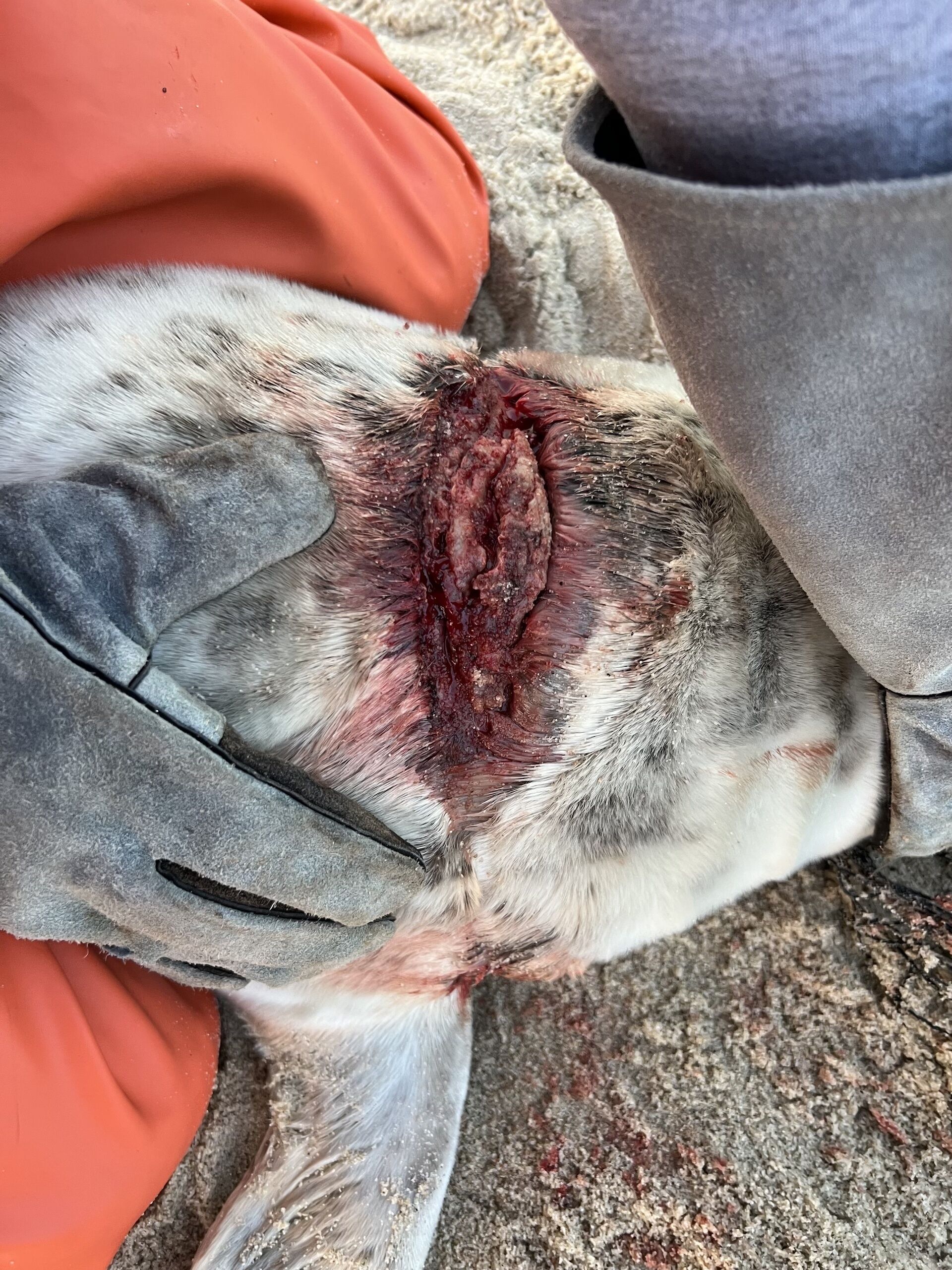Marine Mammal Stranding Team Responds To 12 Recent Entanglements
Nantucket Current •

The Marine Mammal Alliance Nantucket's stranding team has responded to 12 seal entanglements in recent weeks, and is seeking the island community's assistance in its ongoing rescue efforts.
MMAN Stranding coordinator Kim Schulam said that number of entanglements is fairly common for this time of year. Schulam shared the following information for island residents as they return to the beaches with the onset of warmer weather (and a warning: some graphic photos below that may be disturbing):
So what exactly is an entanglement? It’s any ocean debris that can form a loop that ends up around an animal’s body—most frequently, and most critically, around the neck and/or flippers. It can happen to any sea or land creature but we encounter entangled seals most frequently on Nantucket. Seals are important mesopredators in the environment. They are crucial in keeping certain sea life populations in balance. Their excrement and decaying carcasses help to recycle nutrients in the ecosystem.
We’re not sure why this time of year is when we see the most entanglements, but we’ve speculated that it may be because the pups born in January and February are curious as they explore their environment and encounter ocean debris that ends up around their necks and/or flippers. They have now grown enough that the material has cut into their flesh causing painful wounds and hampering their ability to maneuver (hence hunt), swallow, and ultimately will strangulate and kill them.

We see monofilament most frequently but have also removed synthetic rope, synthetic strapping, open-center “frisbees,” balloon string. We have even spotted a large male with a toilet seat around its neck. We are absolutely dependent on the public for spotting many of these because we’re a small team covering a lot of beach. We would like to ask the public to be on the look-out for entangled animals and know what to do when they spot one:
- Entanglements can be obvious but they can also be subtle to spot. Many times the first thing you notice is a raw, red neck wound.
- Do not approach the animal!! Keep children, dogs and other beachgoers away. If it is frightened back into the water, there is no way for us to help it.
- Take photos from a distance, if possible. This will help us to know what we will be dealing with.
- Drop a pin or note the nearest beach access number.
- Call Marine Mammal Alliance Nantucket (MMAN) on our hotline: (833) 667-6626. MMAN is the ONLY organization legally permitted by NOAA to handle marine mammals on the islands of Nantucket, Tuckernuck and Muskeget.
- DO NOT attempt to disentangle the animal yourself!! It is illegal and they will bite and fight!
- If you’re able, remain on site at a distance to point out the animal when our team arrives.
What happens when MMAN receives a call about an entanglement?
- The hotline holder alerts the team.
- Whoever is available mobilizes ASAP. Depending on the size of the animal and the severity of the entanglement, we need between 2-4 team members. It is imperative to get there as soon as possible, before the seal returns to the water.
- Responders arrive and don personal protective equipment. A plan of approach is made, the animal is netted, restrained, and the offending material cut off.
- If enough responders are available, photos and video are taken.
- If there are signs of infection, our veterinarian will advise to apply a topical antiobiotic. The best medicine, however, is sea water. These wounds will actually heal quite well, although a scar will remain.
- Once the "all clear” is given and everyone has moved safely away from the animal, the person restraining the seal can release and move quickly away.
- NOAA has recently approved us to tag entangled animals before release in order to follow the animals and see how they do. We ask for the help of the public to look for light blue tags on the rear flippers and, from a distance and with binoculars, note the number on the tag and report it to us.
- Team MMAN has disentangled 10 seals so far this Spring. We had three in one day last Tuesday. It’s not the most frequent response we do, but certainly the most rewarding.
- Several times a day team members respond to calls of seals on the beach and will always check for entanglement or health concerns and place signs to try to alleviate Human Interaction and give the seal a chance to rest. They are molting right now and that takes a lot of energy so they are frequently seen on the beaches resting.
What can we all do to help prevent an animal from becoming entangled?
- Lose the Loop!! Cut the loop in any trash before disposing of it, eg. plastic holders for canned beverages have MANY loops, the “zip” portion of a zip-lock bag becomes a loop after it breaks away from the bag, packing straps, cut balloon string into short lengths that can’t form a loop, don’t leave plastic toys with loops on the beach and dispose of them properly when discarding. Leave the beach with anything you have come with. Pick up at least one piece of beach trash every time you go! Think of the amount of trash that could be removed from the beach if every beach-goer removed just one piece!
- please dispose of all trash in a proper trash receptacle.